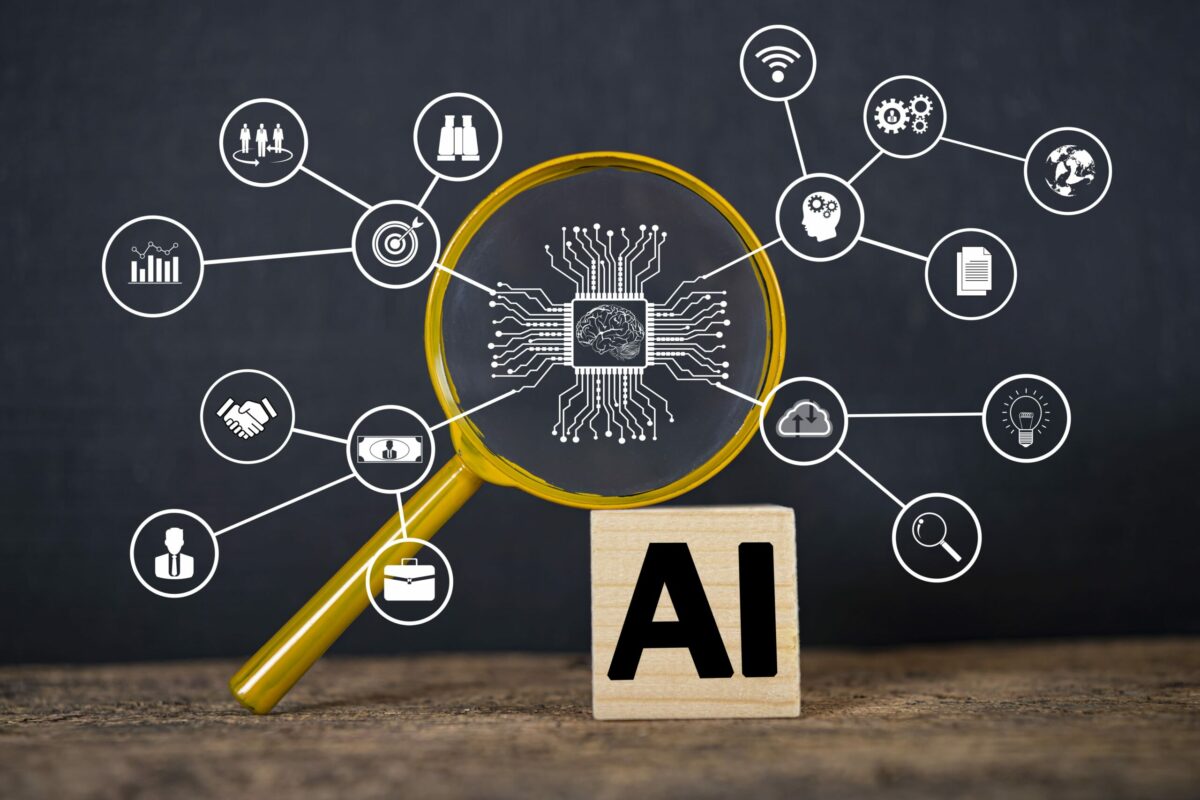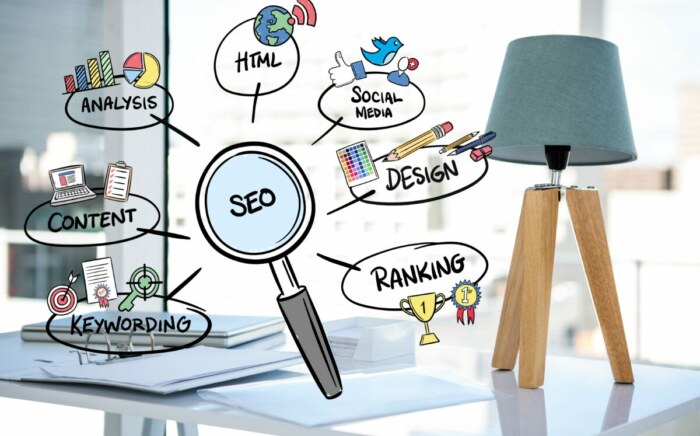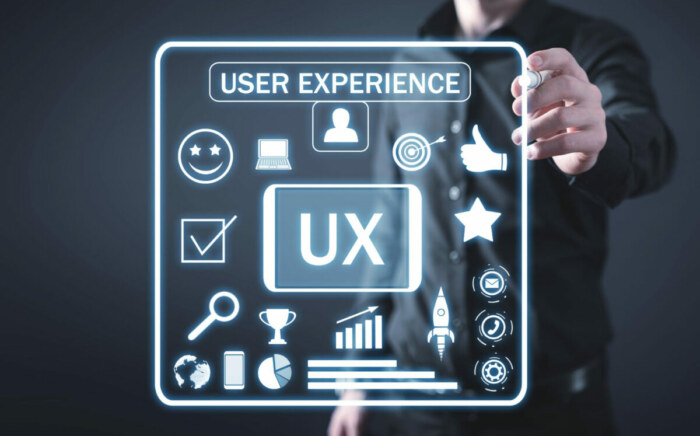| Table 1: Article Outline |
|---|
| 1. Introduction |
| 2. Understanding AI |
| 2.1 What is AI? |
| 2.2 AI in Digital Marketing |
| 3. Benefits of AI in Digital Marketing |
| 3.1 Improved Targeting and Personalization |
| 3.2 Enhanced Customer Experience |
| 3.3 Data Analysis and Insights |
| 3.4 Automation and Efficiency |
| 4. AI-Powered Digital Marketing Strategies |
| 4.1 Chatbots and Virtual Assistants |
| 4.2 Predictive Analytics |
| 4.3 Content Creation and Optimization |
| 4.4 Voice Search Optimization |
| 5. Future Trends in AI and Digital Marketing |
| 5.1 Machine Learning for Hyper-Personalization |
| 5.2 Visual and Image Recognition |
| 5.3 Augmented and Virtual Reality |
| 5.4 Voice and Conversational AI |
| 6. Challenges and Considerations |
| 6.1 Ethical Implications |
| 6.2 Data Privacy and Security |
| 7. Conclusion |
| 8. FAQs |
|---|
AI in Digital Marketing: Future Trends
Artificial intelligence (AI) has emerged as a groundbreaking technology revolutionizing various industries, and digital marketing is no exception. In this article, we will explore the transformative role of AI in shaping the future of digital marketing. By leveraging AI-powered solutions, businesses can stay ahead of the latest trends and gain a competitive edge in the ever-evolving digital landscape.
1. Introduction
Digital marketing has witnessed remarkable advancements in recent years, with AI pivotal in driving these innovations. AI is the simulation of human intelligence in machines programmed to learn, reason, and make decisions. In digital marketing, AI enables marketers to analyze vast amounts of data, automate processes, and deliver personalized experiences to their target audience.
2. Understanding AI
2.1 What is AI?
AI encompasses many technologies, including machine learning, natural language processing, computer vision, and more. These technologies enable machines to perform tasks that typically require human intelligence. By processing and interpreting complex data patterns, AI systems can identify trends, make predictions, and provide valuable insights.
2.2 AI in Digital Marketing
AI has become an integral part of digital marketing strategies. It empowers marketers to optimize campaigns, enhance customer experiences, and drive meaningful results. By harnessing the power of AI, businesses can make data-driven decisions and deliver targeted messages that resonate with their audience.
3. Benefits of AI for Digital Marketing
AI offers digital marketers numerous benefits, revolutionizing how they connect with their customers. Let’s explore some of the key advantages:
3.1 Improved Targeting and Personalization
AI-powered tools enable marketers to gather and analyze vast amounts of customer data. Marketers can tailor their messages and offerings to create personalized experiences by understanding individual preferences and behavior patterns. This level of targeting enhances customer satisfaction and improves conversion rates.
3.2 Enhanced Customer Experience
With AI, businesses can provide highly interactive and personalized customer experiences. Chatbots and virtual assistants, for example, can engage with customers in real time, answer their queries, and guide them through the buyer’s journey. This automation streamlines customer service processes and ensures round-the-clock support.
3.3 Data Analysis and Insights
AI algorithms can process large datasets at lightning speed, extracting valuable insights and identifying trends that might go unnoticed by human analysts. Marketers can leverage these insights to optimize campaigns, identify new market segments, and make data-driven decisions.
3.4 Automation and Efficiency
AI automates repetitive tasks, allowing marketers to focus on strategic activities. From email marketing automation to content distribution, AI-powered systems can handle various processes efficiently. This automation saves time and resources and reduces the likelihood of errors.
4. AI-Powered Digital Marketing Strategies
To fully leverage the potential of AI, businesses can implement a range of AI-powered strategies. Let’s explore some of the most prominent ones:
4.1 Chatbots and Virtual Assistants
Chatbots and virtual assistants use natural language processing to interact with customers in real time. They can answer queries, recommend products, and guide users through the sales funnel. Chatbots enhance customer satisfaction and drive conversions by providing instant and personalized support.
4.2 Predictive Analytics
By analyzing historical data, AI algorithms can accurately predict future customer behavior. Predictive analytics helps marketers identify potential leads, forecast demand, and optimize their marketing strategies. This proactive approach enables businesses to stay one step ahead of their competitors.
4.3 Content Creation and Optimization
AI can assist marketers in creating and optimizing content. From generating blog posts to creating social media captions, AI-powered tools can streamline the content creation process. These tools analyze audience preferences, identify trending topics, and suggest optimized content to drive engagement.
4.4 Voice Search Optimization
Voice search is becoming increasingly popular with virtual assistants like Siri and Alexa. AI-powered voice search optimization helps businesses optimize their content for voice queries. By understanding natural language and context, AI algorithms enable marketers to provide relevant answers and attract voice-based search traffic.
5. Future Trends in AI and Digital Marketing
The future of AI looks promising, with several trends on the horizon. Let’s explore some of the most exciting developments:
5.1 Machine Learning for Hyper-Personalization
Machine learning algorithms are evolving rapidly, enabling hyper-personalization at scale. AI systems can deliver highly personalized content and recommendations by analyzing individual preferences, behavior patterns, and historical data. This level of personalization enhances customer engagement and drives conversions.
5.2 Visual and Image Recognition
AI-powered visual and image recognition technologies are gaining traction in digital marketing. Marketers can leverage these technologies to analyze visual content, identify objects, and understand user-generated photos. This opens up new opportunities for targeted advertising and user-generated content campaigns.
5.3 Augmented and Virtual Reality
Augmented reality (AR) and virtual reality (VR) technologies are becoming more accessible and immersive. AI can enhance these experiences by providing personalized content and recommendations based on user preferences. From virtual try-on experiences to interactive product demos, AR and VR offer exciting possibilities for digital marketers.
5.4 Voice and Conversational AI
Voice-based interactions are becoming increasingly prevalent in our daily lives. AI-powered voice and conversational interfaces enable marketers to engage with customers through voice assistants and chatbots. By understanding natural language and context, these interfaces can deliver personalized recommendations and drive customer engagement.
6. Challenges and Considerations
As AI continues to advance in digital marketing, specific challenges, and considerations need to be addressed:
6.1 Ethical Implications
AI raises ethical concerns, such as privacy, bias, and transparency. Marketers must ensure that AI-powered systems are developed and used responsibly, considering ethical considerations and regulatory requirements.
6.2 Data Privacy and Security
Data privacy and security become paramount with the increasing reliance on AI and data-driven marketing. Marketers must adopt robust data protection measures and comply with privacy regulations to maintain customer trust.
7. Conclusion
AI is revolutionizing the world of digital marketing, empowering businesses to provide tailored experiences, maximize campaign effectiveness, and remain at the forefront of emerging trends. By leveraging cutting-edge AI-powered tools and strategies, marketers can unlock new opportunities and achieve impactful results within an increasingly competitive digital landscape.
Valuable Resources:
- Learn how AI is reshaping digital marketing strategies
- Discover the power of personalized experiences in digital marketing
- Stay updated on the latest trends in AI-driven marketing
Are you ready to take your digital marketing efforts to the next level with the help of AI? Contact our digital marketing agency today to explore how we can assist you and provide our expert services. Reach out to us here. Don’t miss out on the opportunities AI has to offer!
8. FAQs
Q1: How does artificial intelligence enhance targeting in digital marketing? AI technology enables marketers to gather and analyze extensive customer data, improving targeting and customization. By comprehending individual preferences and behavior patterns, marketers can deliver personalized messages that resonate with their intended audience.
Q2: What are some digital marketing strategies that utilize AI? Specific strategies in digital marketing leverage AI capabilities, such as automated chatbots and virtual assistants, predictive analytics, generating tailored content, and optimizing for voice-based search.
Q3: What are the upcoming trends in the intersection of artificial intelligence and digital marketing? Emerging trends in AI and digital marketing encompass machine learning for highly personalized campaigns, visual and image recognition applications, augmented and virtual reality experiences, and voice-based and conversational AI interactions.
Q4: What are the obstacles associated with AI adoption in digital marketing? Challenges include addressing ethical concerns like privacy and bias, as well as ensuring data privacy and security.
Q5: How can businesses make the most of AI in the realm of digital marketing? Companies can maximize the benefits of AI by implementing AI-powered tools and strategies, analyzing data to gain valuable insights, and delivering customized experiences to their target audience.




